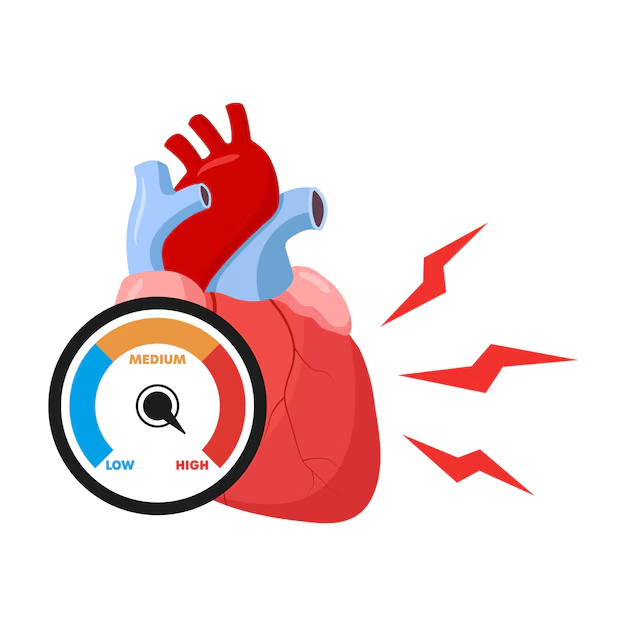What Causes It?
Genetics - Family history can play a significant role in developing hypertension
Age - Blood pressure tends to rise as you get older due to stiffening of arteries
Certain medications - Some prescription and over-the-counter drugs can raise blood pressure
Thyroid or adrenal disorders - Hormone conditions can trigger blood pressure increases
Sleep apnea - This sleep disorder is linked to hypertension
Chronic kidney disease - Kidneys help regulate blood pressure; kidney damage can raise it.
Stress - High levels of stress can temporarily increase blood pressure.
Excessive alcohol consumption - Regular, heavy drinking can damage your heart over time
Low potassium intake - Potassium helps balance sodium in cells; low levels may contribute to hypertension
High sodium diet - Too much salt can cause your body to retain fluid, increasing blood pressure
Tobacco use - Smoking or chewing tobacco raises blood pressure temporarily and damages artery walls
Physical inactivity - Lack of exercise can contribute to weight gain and higher heart rate
Obesity - Excess weight increases the strain on your heart and circulatory system
Signs & Symptoms
Most people with hypertension have no symptoms, even at severely elevated levels
Headaches - Particularly in the morning and located at the back of the head
Shortness of breath - Especially with activity or when lying flat
Nosebleeds - Occurring without obvious cause
Visual changes - Blurred vision or seeing spots
Dizziness or lightheadedness - Particularly when standing up quickly
Chest pain - In severe cases or during hypertensive crisis
Facial flushing - Redness in the face, especially during blood pressure spikes
Blood in urine - In severe cases, potentially indicating kidney damage
Fatigue - Persistent tiredness that doesn't improve with rest
